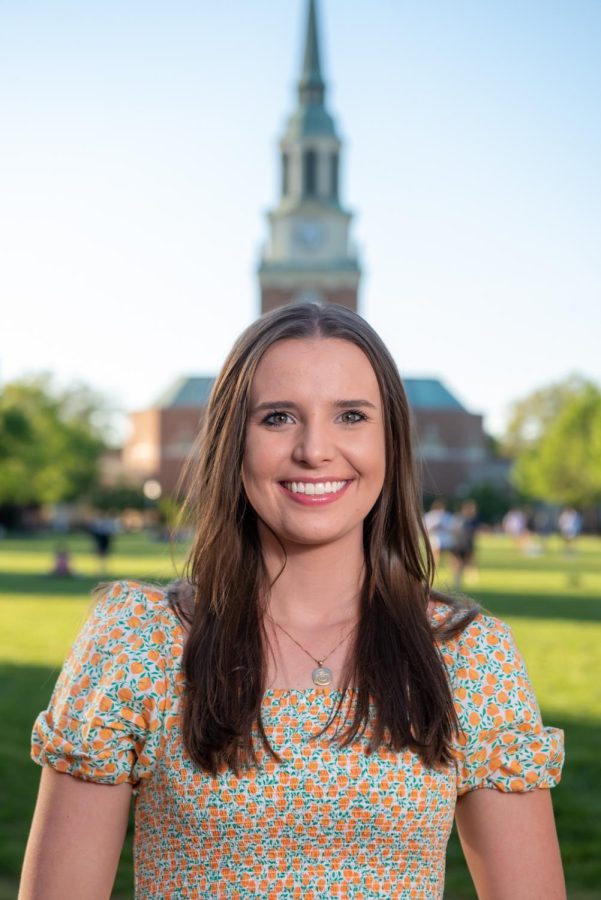Elementary Education: Caroline Fahringer
Caroline Fahringer, a graduating senior from Virginia, comes from a family full of educators — both of her parents work in the field. Drawn to Wake Forest by its location, not too close yet not too far from home, Fahringer initially came to the school without her mind set on any one major.
After a first year seminar taught by Dr. Adam Friedman, Fahringer decided that the education department was where she belonged for the remainder of her undergraduate career.
“During fall break freshman year, I looked at my parents, and I said, ‘What would you do if I said I wanted to teach?’ and my mom was like, ‘I was just waiting for this to actually happen,’” Fahringer said.
In her junior fall, Fahringer had the opportunity to apply what she learned in the classroom to teaching at Brunson Elementary School. Brunson Elementary School, a Title I school, presented some new challenges as Fahringer helped students work in an environment that was “very different from Wake Forest and from where [she] grew up.”
For instance, many of the students in Fahringer’s class were not meeting their target reading levels — of the group of fourth graders that she taught, several were still reading at a first or second grade level. She attributes this trend both to the educational gaps created by online learning during the COVID-19 pandemic and to childhood trauma that some of the kids in this group may have experienced — which could disrupt concentration and lessen the relative importance of school assignments.
“I had to learn how to adapt my curriculum and what I was supposed to be teaching them,” Fahringer said. “It was about recognizing that kids have bad days, not coming in with expectations, and ‘meeting them where they are at’ — that’s the motto I try to live by.”
Fahringer said another difficulty of student teaching was balancing work, class, her social life and sleep. Every weekday, she was in the classroom from 7:30 a.m. to 3:30 p.m. and often stayed later to work on lesson plans and grade homework. On Mondays, she also took a class back at Wake Forest. To maintain some work-life balance, she vowed to leave her teaching work at the elementary school campus, never bringing it home with her.
Throughout the challenges, Fahringer leaned on her peers in her “cohort” — the group of students studying education on a licensure path — for support and guidance. Only 10 people in the class of 2023 are studying elementary education, so they developed close bonds with each other as they progressed toward their degrees.
“We all became really close,” Fahringer said. “We had a group chat we could text each other in if something happened in the classroom, and that was particularly helpful.”
After graduation, Fahringer plans to teach fifth grade at Moore Elementary School. Equipped with the classroom management skills she developed during her junior year, she will teach students all core subjects — including math, her favorite to teach because of its more challenging nature — while preparing them for standardized tests.
But Fahringer may not spend her entire career in the classroom. After some time as a teacher, she plans to go into educational policy, focusing on revamping the current standardized testing system for elementary schools. Currently, although the tests are mostly used to judge the quality of teachers’ performance, they can be stressful for children and an inaccurate measure of intelligence.
“I don’t want to teach long term,” Fahringer said. “I don’t think children should be taking tests like this. It doesn’t have to be just sitting there and taking a two-hour test on reading. There are other ways to evaluate knowledge.”
Regardless of what the future holds, Fahringer credits the children with making her job fulfilling and urges younger Wake Forest students studying education to hold on through the highs and lows of their experience in the major program.
“It’s going to be hard but so worth it,” Fahringer said.
